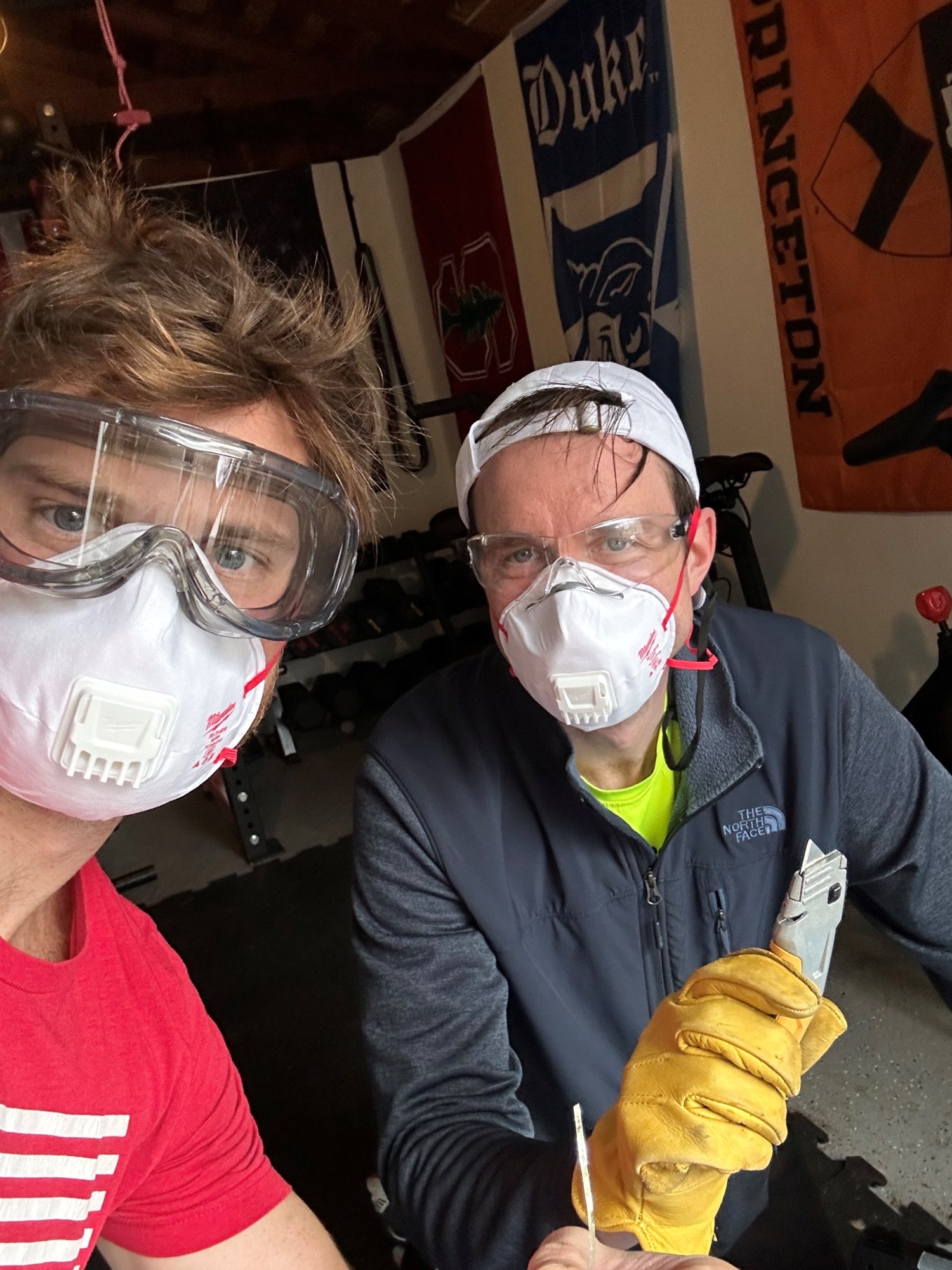Stanford Students Pioneering Solar Panel Reuse

The journey of innovative ventures often begins with a spark of passion and a commitment to address pressing global challenges. For Fred Addy and his team, their journey started at Stanford University, where they embarked on a mission to prevent solar panels from ending up in landfills. What began as an idea born from their shared dedication to sustainability evolved into Sunkara, a pioneering venture focused on facilitating the repowering and sustainable disposal of solar arrays.
Fred’s journey into the realm of sustainable technology traces back to his early days at Stanford.“I wanted to be a part of the solution in the fight against climate change,” Fred mused. With a desire to effect meaningful change, Fred was drawn to a course called “Hacking for Climate and Sustainability”. The course offered a structured framework, adapted from the Lean Startup methodology, aimed at equipping students with the tools to tackle complex environmental challenges through innovation.
“I came into Stanford with a goal of starting a company in the sustainability space,” Fred recalls. “I had several ideas brewing, including solar recycling, which eventually became the focus of our venture.” Even before stepping foot on the Stanford campus, Fred had an entrepreneurial spirit, establishing ventures in high school like his own tutoring service and pioneering a toner package recycling initiative. Yet, it was his enrollment in the Hacking for Climate and Sustainability course that honed his abilities, equipping him with the essential skills to transform his ideas into a tangible business.
The journey truly began when Army veteran Fred Addy (MBA) and his team, including Stephen Beaton (PhD, MBA) from Stanford Business School, along with Matti Thurston (MS MatSci), Franky Barrera (PhD MatSci), and Luka Radosavljevic (MS MatSci) from the Engineering department, embarked on their exploration of solar panel recycling and repurposing. Aware of the imminent surge in solar power adoption and the consequent demand for recycling solutions in the next 5-10 years, the team was trying to understand how to make and keep solar power clean throughout its entire lifecycle and prevent solar panels from ending up in landfills. Armed with the methodology learned in the course, they delved into the problem space, conducting extensive discovery and engaging with stakeholders directly impacted by the issue.

“At the outset, we were determined to tackle all aspects of solar panel lifecycle management: upcycling, reusing, and recycling,” Fred explains. “However, as we progressed, we realized the need to focus our efforts and streamline our approach.”
Through interviews with key stakeholders, the team was able to rule out some of these pathways. In the first few weeks of the course, the team discovered that upcycling was not a viable path for their budding business model. With the significant drop in the cost of solar power and the growing demand in the resale market, it was now more financially beneficial to reintegrate the raw materials back into the supply chain.
However, their interviews up to that point unveiled a new trail to follow around solar panel recyclability – a polymer used in solar cells called ethyl vinyl acetate (EVA). The team took to Fred’s garage with a damaged solar panel with an idea for testing whether they could separate the elements in the solar panel using heat. After running current backward through the solar panel to heat them up and pull them apart, they were able to extract silver using a heat gun and a box cutter. Today, Fred is considering delving deeper into this process and pursuing a patent, but, at the time, the team ultimately determined that this pathway wouldn’t be a viable business, especially given the number of established companies already in the market.
Through this process of rigorous discovery and experimentation with key stakeholders, Fred and his team discovered a niche within related to reuse: repowering solar panels for off-grid applications.
“We recognized a growing trend in solar panel repowering, where older panels were being replaced with newer, more efficient ones,” Fred elaborates. “Our challenge was to find a viable solution for repurposing these panels, which were no longer suitable for on-grid installations.”
By the end of the course, the team had a minimum viable product (MVP) of a business that could address the residential sector’s repowering needs, and plans for a pilot program.
Through the course of the semester, Fred met a company that would eventually become a partner, Decom Solar, which has established itself as a leader on decommissioning and sustainable disposal of solar panels in the commercial and industrial sectors. Decom Solar had successful partnerships with non-profits who are actively reinstalling used solar modules in countries in need of free electricity, so the synergies between them were immediately clear. Over the summer, Fred worked with Decom Solar and together they successfully worked on several decommissioning projects, removing solar panels from commercial sites in the United States. They are currently collaborating to establish more robust overseas partnerships with developers and logistics groups that will allow them to send larger quantities of modules to other countries including Haiti and Tanzania.
His efforts culminated in the creation of Sunkara, a venture dedicated to saving solar panels from premature disposal and extending their lifespan through repurposing. In the aftermath of a surge in shipping prices due to global unrest, Sunkara has successfully created a new subset of their business: an online model that helps customers estimate when they can profitably replace their solar panels. Sunkara, with the partnership of Decom Solar, has completed 20+ megawatts worth of projects and aim to add another 30 MW this year. By 2027, they hope to reach the Gigawatt scale, moving the world closer to net zero.
Sunkara became more than just a business venture; it became a mission to bridge the gap between sustainability and defense. Our journey wouldn't have been possible without the guidance and structure provided by the course at Stanford.
As Sunkara continues to make strides in the realm of solar panel repurposing, Fred remains grateful for the transformative experience that shaped their journey. Looking ahead, he envisions further growth and impact, leveraging their expertise to address the pressing environmental challenges of our time.
“Taking the course was a turning point in my career,” Fred concludes. “To students considering it, I would say: treat it like it’s real, because the impact you can make is real. Embrace the journey, and you’ll emerge better equipped to confront the world’s most pressing challenges.”
From the classroom to pioneering efforts on the global stage, Fred and his team exemplify the power of student-driven innovation in shaping a sustainable future for generations to come.